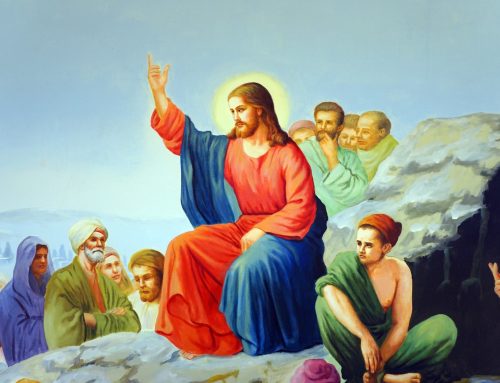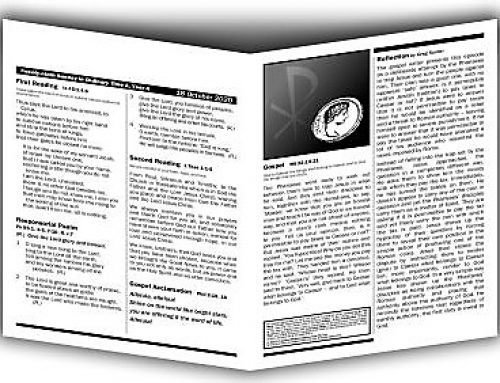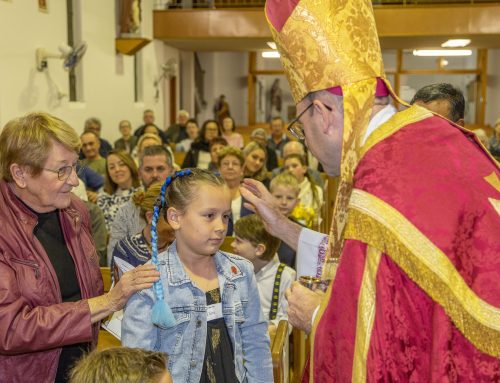Saint Polycarp – 23 February
Polycarp, bishop of Smyrna, disciple of Saint John the Apostle and friend of Saint Ignatius of Antioch, was a revered Christian leader during the first half of the second century.
Saint Ignatius, on his way to Rome to be martyred, visited Saint Polycarp at Smyrna, and later at Troas wrote him a personal letter. The Asia Minor Churches recognized Polycarp’s leadership by choosing him as a representative to discuss with Pope Anicetus the date of the Easter celebration in Rome—a major controversy in the early Church.
Only one of the many letters written by Saint Polycarp has been preserved, the one he wrote to the Church of Philippi in Macedonia.
At 86, Polycarp was led into the crowded Smyrna stadium to be burned alive. The flames did not harm him and he was finally killed by a dagger. The centurion ordered the saint’s body burned. The “Acts” of Saint Polycarp’s martyrdom are the earliest preserved, fully reliable account of a Christian martyr’s death. He died in 155.
Patron Saint of Relief from Earaches





